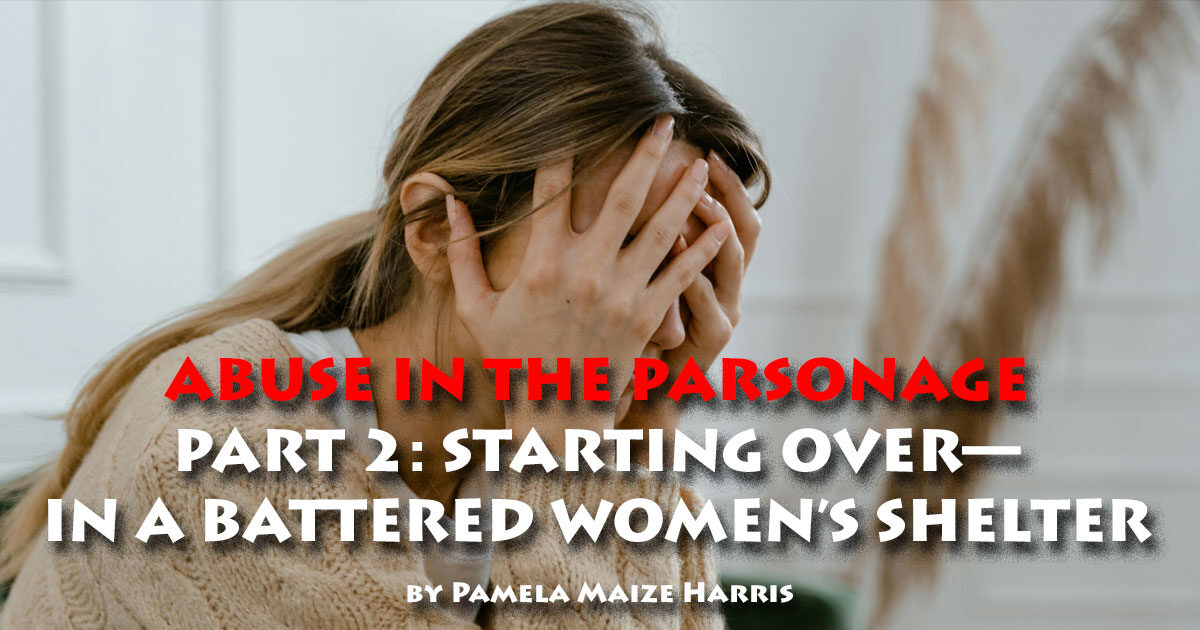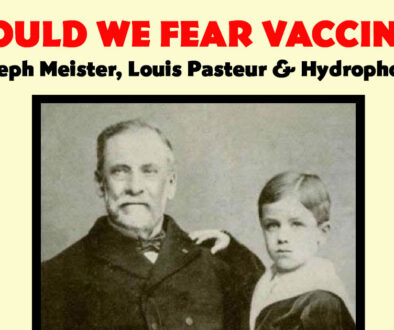Abuse in the Parsonage, Part 2: A New Start—and the Abuse Starts Again, Too
by Pamela Maize Harris | 10 April 2025 |
This is a story about domestic violence committed by a pastor in an Adventist clergy home. You can read the first part of Sylvia’s story here. This is a true story, though names have been changed to protect the identity of those involved.
When the abuse while working in their first church assignment together got too much, Sylvia had moved elsewhere to live with family. The separation was a trial. For awhile Sylvia came home on weekends so as not to let the church know of the problems. But eventually that became dangerous, too. Sam wasn’t working on the marriage or regarding the separation with the gravity Sylvia thought it demanded. He seemed to be playing at being a pastor—and a husband.
Sylvia still had access to the phone bill, where she noticed a number Sam was texting up to 30 times a night between 2:00 and 3:00 a.m. over several months. Sylvia called the number. The woman who answered said she had met Sam frequently in a bar not far from his pastorate.
When Sylvia confronted Sam, he admitted to having a girlfriend, and also owned up to the texts and frequenting the bar for three months.
Bizarre, misspelled posts began appearing on Sam’s feed. Was he under the influence?
“I need Sylvia to pick up. But she will only pick up if I sincerely apologize glfir things. First iaoolgise for what others did. But I don’t really thing they did sbythung.”
“Jesus dies undryabd because he knows all things. I’ll count in that….” “Sorry World. I can’t make sense if it. And I can’t be here….But I have so much hate and silence coming y way…my love is being abused. How… in the world, do yiu do it Jesus? Please save me. I’m Dizzy now.”
“I need to sleep, and make the voices stop. But, so many pills.”
Parishioners responded they didn’t know what was going on, but they loved him. One respondent said, “Reach out please Sam if we can help….”
A family member across the country read his social media posts and called 9-1-1, sending an ambulance right to Sam’s door. Sam was admitted to the hospital for several days where the staff took his phone. His bizarre social media posts remained visible for several days. The Conference put him on leave, provided counseling, and then fired him. Sam publicly blamed Sylvia for his job loss.
Sam had committed other secret grave indiscretions in her absence, he told Sylvia. “Why? Why did you do these things?” she asked him. “I thought I was building another life,” he answered mysteriously.
Starting over in a new conference
Sam, released from observation but now without a job, headed to a church convention with no idea what his future held. There Sam met a conference president and a pastor who invited him to stop by on his trip home to interview for an open position. Despite their separation, Sylvia agreed to join the interview by phone. She said she believed Sam needed her and that it was her “wifely duty.”
After the interview, Sam drove to meet personally with Sylvia. He wanted to salvage his marriage, because he desperately wanted that pastoral job. He got on his knees and apologized. He took her in his arms and promised he would never hurt her again.
He gave her a new diamond ring as a symbol of their fresh start—a stunning upgrade from the simple gold band. Her heart melted. After all, a diamond ring symbolized eternity. “I sincerely forgave Sam that day,” Sylvia said. “But I told him I would never be abused or have our marital vows compromised again.” He agreed.
They picked up their belongings from storage and drove to their new home in a faraway state. This was a new beginning. When they pulled up at their new home, Sam carried Sylvia across the threshold, like newlyweds.
Members of the congregation brought homemade preserves and garden produce. The couple shot happy photos. which they posted on social media. Sylvia loved being a pastor’s wife again, and she felt God was leading in their lives as they served their churches. Maybe, just maybe, five years after their wedding, the marriage would turn out to be a happy one.
Sylvia said, “The abuse seemed over—perhaps we had beaten the odds.”
A major red flag
Seven months into their new assignment, and about a month before their anniversary, they made plans for a getaway. Shortly before leaving, Sam shared his plans for an activity he seemed excited about: he wanted to experiment with a sexual threesome, and he had ordered an outfit for her to wear during the encounter.
Sylvia felt sick. She clung to her pillow that night, worried and restless. Above their cherry bed were stenciled the words: “My beloved is mine, and I am his.” (Song of Solomon 2:16) She had hoped for a healthy marriage—now this. She lingered under the white comforter, wishing to hold the moment; life had been good until this. Was it a sordid dream?
For a moment she thought about going along with his fantasy just to save her marriage. But it was devastating and awful to even think about.
The next day she walked down to Sam’s church office, and confronted him. “Sam, our marriage is holy before God. There is no way—ever!” Instead of saying, “Oh, I’m sorry, honey. I was thinking like a crazy man,” he replied, “Really? I’ll have to send back the dress I ordered for you to wear.” They took a trip—but only a family-friendly one: hiking, shopping, eating out, and sleeping in. “Thank you for the lovely time,” she told him when they returned. Sam scowled. “It was the worst weekend of my life,” he responded.
After the anniversary trip, Sam lay on the sofa for ten days, sulking and depressed. “You know, our marriage is hanging by a thread,” he told Sylvia.
The explosion
Sam’s behavior became increasingly strange. One evening he took ipecac syrup just before a church elders’ meeting, and staged a crisis that he was gravely ill at the meeting.
Afterwards he said, “Sylvia, I demand you give me back the ring.” He grabbed her hand and tried to pull the ring off. She ran to the bathroom and locked the door. He knocked the door in and sat on the bathroom floor—and said nothing. The next day, he told Sylvia that he had brought her to this new pastorate “to be reanalyzed in one year. But it could be reanalyzed sooner.” Hadn’t he believed in the marriage when he knelt and gave her that ring? It now seemed merely a trick to get her to move with him and keep his job.
On Sabbath, Sylvia noted the same agitated behavior she’d seen in Sam just before he abused her. He’d lost his sermon notes, misplaced his computer cord, and it was making him angry. “I was hoping and praying it wouldn’t happen again,” Sylvia said.
It was Sunday morning when the explosion came. Sylvia was playing a hymn on the piano. Sam came up, his eyes crazed, and began yelling about her not being ready for them to go to the gym for their workout.
The old Sam was back. The next 45 minutes were the most terrifying of any in Sylvia’s life.
She ran to their master bedroom for safety and tried to lock the door. He busted it open. He jumped on her on the bed and thrust her head against the headboard repeatedly. He grabbed her phone and threw it on the floor out of her reach; when she tried to reach it, he began beating her with his right fist, connecting with her shoulder. He covered her mouth and nose with his hand and pounded with the other. She feared she’d be smothered.
“I should just kill you!” he screamed repeatedly. Then he spat on her again and again. “Oddly,” said Sylvia, “it was the spitting that hurt the most.”
After 45 minutes he stopped. In retrospect, Sylvia thinks, this pause may have saved her life. Sam left, then returned, still agitated and angry. He refused to leave and go to a hotel, so Sylvia gathered her laptop, purse, coat, and shoes while Sam threatened her and chased her to the front door. There he threw himself on the floor. “Don’t leave,” he begged. “Don’t leave.” As she opened the door, he screamed, “Don’t go telling my family or my churches!”
Life in a shelter
Sylvia headed out in a bitter cold night, running a mile to the town hospital, where she knew she would be safe. After resting there, she walked another mile to a nearby hotel, purchasing a few toiletries at a drugstore. After a couple of days in the hotel Sylvia was put in touch with the local women’s domestic violence shelter. Their shuttle picked her up. Sylvia stayed at the shelter for a month, during which she made a detailed police report. They photographed the bruises on her arms, legs, face, shoulders, and thighs, and she was interviewed by domestic violence professionals.
“Shelters are dirty toys, runny-nosed under-clothed children, dark walls, ragged furniture, and broken dreams. No one goes there by choice,” said Sylvia. “Moms and children come with fear and with many needs and bad memories. Sadly, though, many women return to their abusers—just as I had.”
The shelter had its own culture. No bleach or dish soap. Inadequate lighting. Paper plates were a rare luxury. The wiring was inadequate, which meant as Sylvia tried to keep up with her online job, her computer would overheat. Anyone with access to a vehicle was at the top of the totem pole. On her first Friday night she cleaned up the supper dishes with the television blaring ghost sightings, while two residents sat stoned on the couch, where graffiti and dirt lined the walls. Such a contrast from a freshly cleaned house, the Heritage Singers’ harmonies wafting from the speakers, and time to relax after Friday night supper! “Lord, you know right where I am,” prayed Sylvia. “I’m depending on you to keep me safe.”
Residents were more than domestic abuse survivors. Some were homeless, one woman was fleeing with a 5-year-old child from an attempted homicide, another was just released from prison for human trafficking other women. Sylvia bought locks to secure her purse, luggage, and laptop, and covered her ring with a Band-Aid. The women seemed hardened, and Sylvia rather innocent by contrast. She wondered how to establish a strong place in the “pack.” She opted to be genuine, to ignore residents openly doing drugs and alcohol.
Knowing that Sam was out of town, she ran to the parsonage and rescued her dog, Winston. The shelter directors graciously bent the rules to allow it. Winston proved to be an ally: the women and children loved him. Sylvia bought a bicycle and a basket to take Winston to the vet. Shelter women talked about their court orders, motions, and other trial and legal issues. Sylvia realized she could answer their questions—and not just legal, but also financial and strategic issues. She relayed to them how to use a video device to capture evidence. Soon she was “in.” Being “in” meant the women protected her and Winston.
Sylvia remained in the shelter through Easter. The women pooled their resources, found a festive tablecloth, purchased Easter eggs for the children’s hunt, and gave each child a donated basket. Sylvia biked to the store for other items for their menu. Before they ate Easter dinner, Sylvia offered a prayer. She told them stories about a trip she’d made to the Holy Land, where the Christ of Easter had once walked. “The women loved and respected me,” Sylvia said. “Even among the tattoos and the hardness, I saw humanity…. There was such beauty and grace in that simple Easter—it’s one I will never forget.”
Sylvia also shared with the residents about the assault she experienced from Sam. Even after their own hard experiences, the women expressed shock. “Your battery was even worse than ours,” they told her. “Your husband, the priest, did this?”
Next: A shocking response from the conference
 Pamela Maize Harris is retired from teaching journalism at Southern Adventist University. She writes investigative reports for Adventist Today.
Pamela Maize Harris is retired from teaching journalism at Southern Adventist University. She writes investigative reports for Adventist Today.




